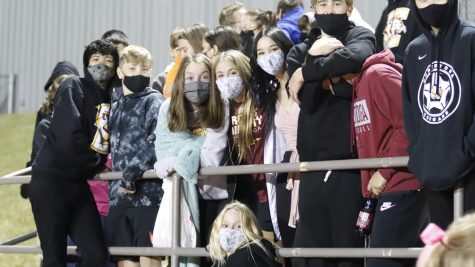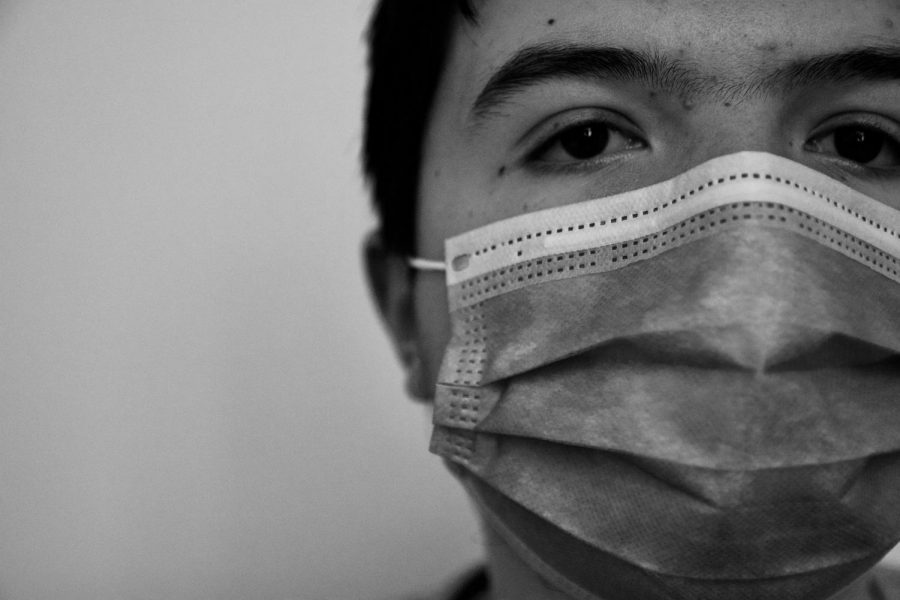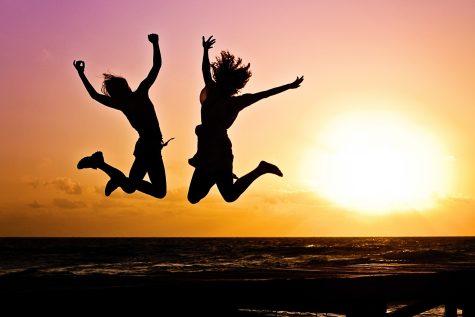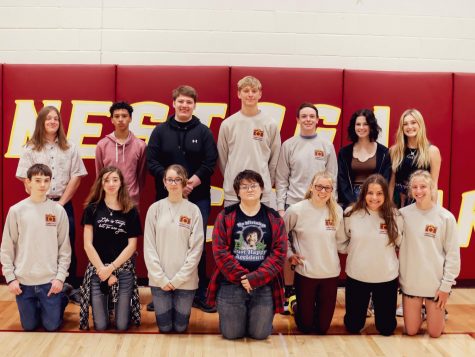The Mask Debate
To Wear, or Not to Wear
A young man wears a mask during the coronavirus pandemic. Research has shown that masks can be effective in helping prevent the spread of infection.
Murray, Neb.–“Should we wear masks?” and “Do they even work?” These questions have been a key component of the current pandemic, and there has been much debate about the effectiveness of masks in preventing the spread of the coronavirus. Many tests and experiments have been conducted to find out, and the short answer is: yes.
Masks have been proven to drastically slow the spread of cases in the long run, and may be the most effective way to end the pandemic quickly and with less casualties.
Covid-19 spreads like a ripple. One person who has it can spread it to whoever they come into contact with. Those people then create their own ripples, furthering the spread. Preventing one case could prevent dozens down the line. For this reason, mask usage can make a huge impact in reducing virus transmission.
Those who disagree with wearing masks believe we can conquer the pandemic by developing herd immunity. According to the Mayo Clinic, herd immunity occurs when a large portion of a community (the herd) becomes immune to a disease, making the spread of disease from person to person unlikely. As a result, the whole community becomes protected-not just those who are immune.
A person who has recovered develops antibodies. Antibodies are specialized proteins that protect the body from viruses. However, there is a lot of debate about whether or not these will prevent a person from becoming infected multiple times. Even if antibodies do protect people, the effects are temporary. According to a report in Web MD, a man in Hong Kong tested positive for Covid-19 in August, after having recovered from the disease back in April. Before he was released from the hospital after his first bout with the virus, he tested negative twice.
Another factor to consider is the costly nature of this strategy. Dr. Leanna Wen is an emergency physician, and a CNN medical analyst. In a Sept. 1 Article by CNN, she was quoted saying “If we’re waiting until 60% to 80% of people have it, we’re talking about 200 million-plus Americans getting this — and at a fatality rate of 1%, let’s say, that’s 2 million Americans who will die in this effort to try to get herd immunity.”
With a time limit on the length of any sort of immunity, then all of these people would have to get it within a shorter time span of each other. This would mean that hospitals across the country would be overflowing, and with a comparative shortage of life-saving ventilators and other necessary equipment, the mortality rate would increase as doctors are forced to make tough decisions about who gets a chance at life and who doesn’t. Relying on herd immunity could be disastrous for our country.
On the other hand, if people wear masks it is not necessary for millions of people to get sick in an effort to achieve herd immunity. People, potentially millions of people, don’t die as an unfortunate side effect. Anyone who has medical concerns in regards to mask wearing can choose to use a face shield. Face Shields are less effective than masks as they don’t offer any sort of filtration, but they are still better than nothing.

Regarding the question of whether or not masks work, all of the evidence points to yes. Other countries that have implemented mask mandates have seen tremendous results, and have maintained lower case numbers per 100,000 than countries that have not. Using a more local example, a little while back Lincoln implemented a mask mandate, and almost immediately saw a drop off in new cases of covid-19, while the state average continued on its upward trend.
The data is available, and it is clear. Masks work, and they’re the most effective way we currently have to stop the spread without the risk of causing millions of deaths. Even if you’re “not scared of getting it,” or you “don’t care” if you get it, there are more concerns than just yourself. If you get it, then you will probably end up giving it to somebody else. The pandemic will keep progressing.
You have a chance to stop a case, to potentially save a life by simply not taking it. If not for yourself, wear a mask for the rest of the people out there.
John is a Sophomore at Conestoga High School. He participates in numerous fine arts and academic extracurriculars such as band, one act, speech, and FBLA....








